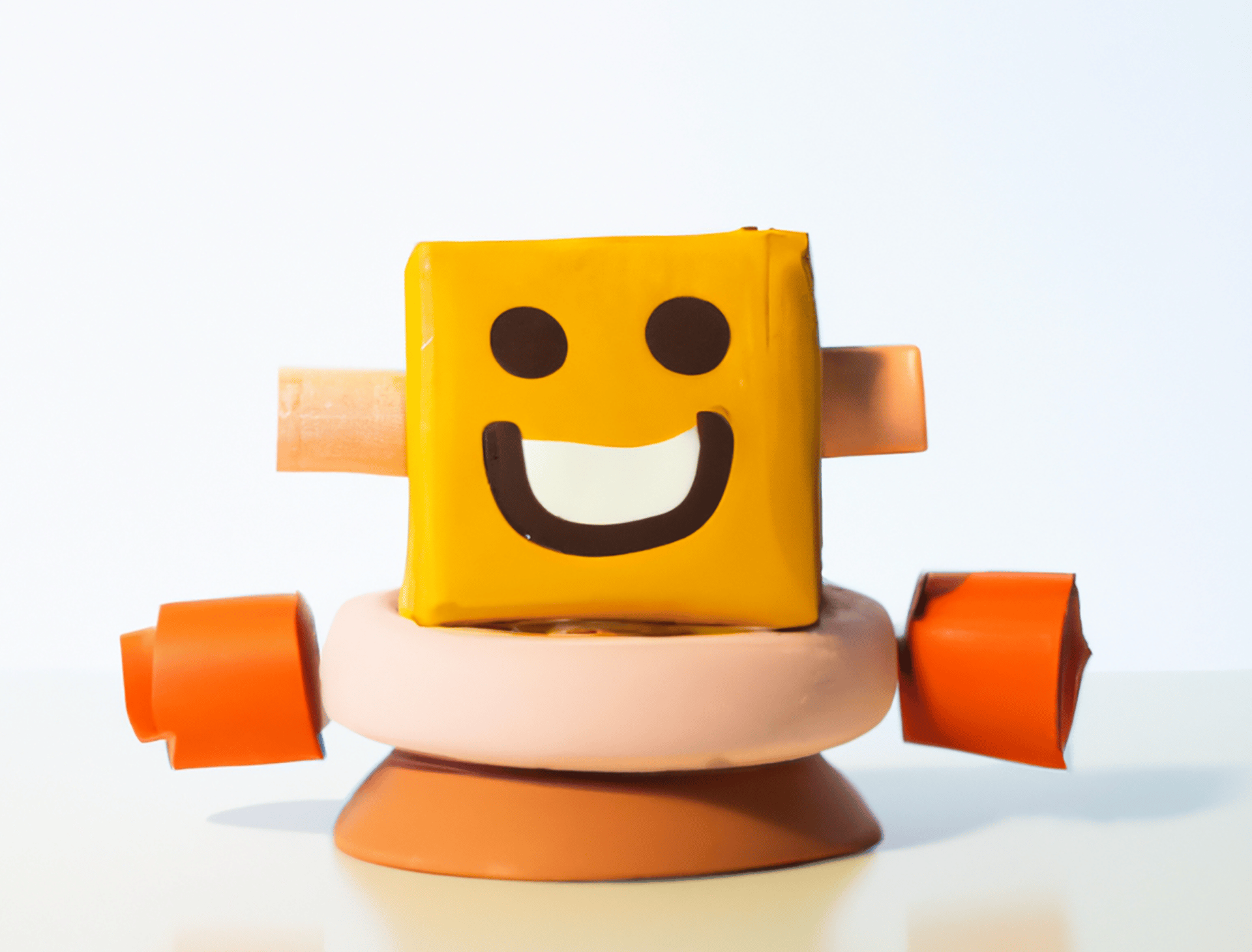A Step in the Evolution of Human-Machine Relationships
The essay is dead. Programming is dead. Google is dead.
Have you heard any of these statements (or perhaps more along those lines?) in regard to the effects of powerful generative AI models like ChatGPT? Before we gather at the cemetery, let's consider a quote by Florida Scott-Maxwell: "Every seed destroys its container, or else there would be no fruition."
Libraries used to be small collections of handwritten texts, limited in patronage and often located in private homes. The printing press revolutionized that, and then widespread computer use made it much easier to catalogue and find specific books, opening up knowledge and readership to many more people. Now we can renew our books, request inter-library loans, and get personalized reading recommendations online, all from home before we make our trip. Libraries still exist---they've just changed.
The point is: the "death" that people so dramatically proclaim is usually not really a death but a transformative turning point, a seed's shell that bursts open to make way for the next stage of growth.

With the snowballing effect of technology today, this is happening ever more rapidly. The capabilities of ChatGPT are indeed likely to change they ways we operate, just as the internet, smartphones, and home assistants have. These are all steps in the evolution of human-machine relationships, which are becoming increasingly intertwined and at a faster pace. What does that mean for our own evolution?
Knowledge and Education
Teachers are already recognizing the need to rethink some longstanding fundamentals of the educational system. Do the common metrics for student success really reflect the skills they'll need for personal development and productive contribution to society? Some have already argued, for example, that cover letters are better at conveying how well a person can follow an expected structure and craft the letter than how well-qualified they actually are for the job. Or that standardized tests display one's test-taking practice more than the depth of understanding of material and concepts.
As high school teacher Daniel Herman noted, "I believe my most essential tasks, as a teacher, are helping my students think critically, disagree respectfully, argue carefully and flexibly, and understand their mind and the world around them." Getting past the basic hurdles of writing formulation, which many students struggle with, could help them focus on these kinds of skills. Perhaps in the future teachers will be less concerned about how well a paper is written---because good writing form will be a given (those that wouldn't otherwise write well can get help from AI)---and look more instead at the depth of thought, critical thinking, or originality that a student demonstrates.

Some schools have chosen to ban or restrict the use of ChatGPT because of its potential for cheating or damaging the learning process. It is important to keep the problematic issues of generative AI in mind, and educators are now inevitably faced with a new kind of guarding against the wrong temptations.
But ChatGPT can be used to help develop students' skills, too, if it's looked at as a starting point rather than an ending. Teachers could even instruct students to use the tool to generate an essay---and then find all the ways the essay could be improved, through a sharper argument, stronger voice, personal experience, etc....more of a human touch. In some cases, the writing AI generates could serve as an example of the kind of work not to turn in, because of factual inaccuracies or a hackneyed feel.
Will the essay die if students use ChatGPT in these ways? No, but it will change---becoming less formulaic and more personalized, not to mention better polished for grammar and flow. A similar approach to broader learning and knowledge could also be taken: rather than memorizing and spitting out information, students should work on internalizing it and applying it to their personal lives or current real-world situations. This is something that ChatGPT can't do, and it's an important skill for solving the problems that we face.
Job Automation
Many times we find new ways to automate work tasks and think, "Yessss. This is amazing. It saves me so much time and trouble. What did I ever do without it?" And then there are the times we worry that automation will get too good and we'll lose our jobs altogether---"What will we ever do when computers do everything for us?"
Just like in education, some are inclined to ban the use of ChatGPT for work tasks, such as Stack Overflow's decision that generating content for coding produces too high a rate of incorrectness. If that's the case, it makes sense not to use a tool that only ends up making more work checking and correcting what it produces. But others have found ChatGPT to be helpful in generating or debugging code, and it's likely to get better over time. (GPT-4, the next version of OpenAI's language model, is planned for release early next year.)

So, once it gets good enough, coding and programming may become largely AI-generated. This doesn't necessarily mean that developers will have nothing to do, though. A more receptive outlook is that a "shift away from coding opens up new ways of looking at application development---to more conceptual and high-level business roles." Not needing to spend time writing code could mean that developers can better hash out new ideas & designs, and orchestrate more projects in less time.
Information Access
When internet search engines like Google emerged, our access to information sped up incredibly. Finding things out became so much easier, whether we wanted to follow a fleeting curiosity or discover the books we'd need in order to learn on a deeper level. As technology progresses, our searches are becoming more flexible and less time-consuming. If we're cooking and have food on our hands, we can verbally ask a home assistant to get information for us. And soon, when we do want to look something up through a screen, our specific requests will be answered directly, rather than presented as a list of articles to peruse in order to find what we're looking for.
There are pros and cons to that. Sometimes those links lead to great reads and insights, and they're worth stumbling onto. And it's a good point that people may not want to give up the agency of choosing which links to follow. But, especially when a specific answer to a question is sought, an instant summary providing what you need---and fine-tuning as you ask---could be pretty handy.

In ChatGPT's current form, it wouldn't be able to give reliable, up-to-date information for all the searches we want to do. But with Microsoft incorporating the technology into Bing, which we could see as soon as March, the chatbot ease could be combined with current information for a revamped searching experience. (It's still debatable whether that will be Google's demise or whether the search giant will adapt and change its own approach similarly.) In any case, the best scenario will leave us with options: how we want to search, whether we want quick answers or longer explorations, and the choice to follow up with relevant articles that our AI assistants provide.
Long-term Trends in the Evolution of Human-Machine Relationships
Two overall trends in our relationship with technology over time are that we use machines more and they make processes faster. This tends to compound, so that we're approaching a point where the amount of digital content and the speed at which we interact with it are too much for the human brain to keep up with and still maintain a healthy equilibrium. But it's also a point where we don't need to constantly keep up with everything: computers do that. Rather than frantically trying to multitask and address every issue immediately until we burn out, we can automate a lot of things to our machines...and slow down, regaining some of our humanness. We aren't machines and shouldn't try to be.

Computer systems do more and more of the time-consuming work we used to do, freeing us up for other things. What will those other things be? Imagining into the future, it's easy to envision both pessimistic and optimistic scenarios: maybe human purpose will become irrelevant and people will increasingly be consumers instead of creators, continuously absorbing content and goods created by AI; or, maybe we will grow into more creative, philosophical and connected creatures, able to engage in the thoughtful activities that had been luxuries when we'd had so many time-consuming tasks to complete before.
Reality is hardly black and white, so we'll probably get some of both. This turning point, in its most powerful sense, is an opportunity to decide how we want to evolve. Whatever our course may become, there's a seed breaking open to fruition beyond any we've experienced before.
-
More in this series:
Stay connected. Join the Infused Innovations email list!
Share this
You May Also Like
These Related Posts

The Problem(s) with ChatGPT

ChatGPT Gets Chatty!

No Comments Yet
Let us know what you think